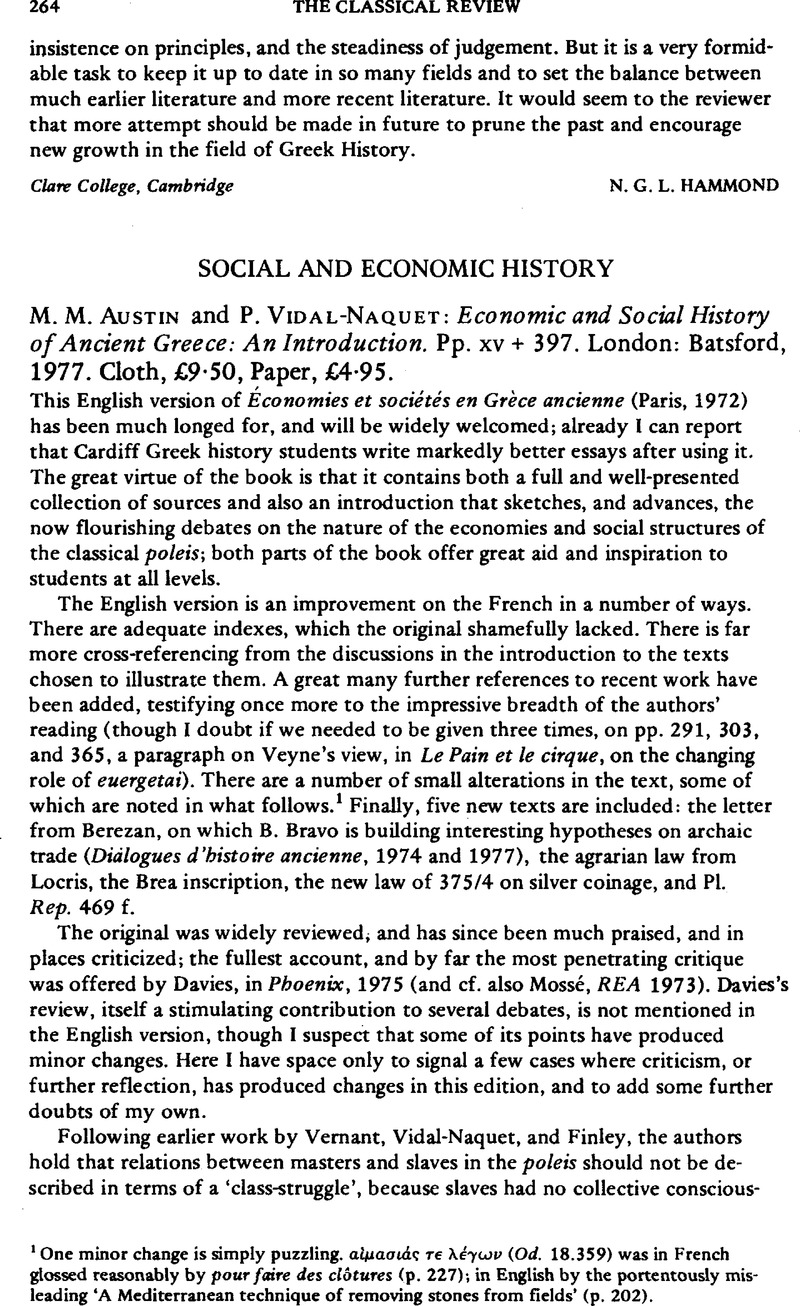No CrossRef data available.
Published online by Cambridge University Press: 27 February 2009

1 One minor change is simply puzzling, α⋯μασι⋯ς τε λ⋯γων (Od. 18.359) was in French glossed reasonably by pour faire des clôtures (p. 227); in English by the portentously misleading ‘A Mediterranean technique of removing stones from fields’ (p. 202).
2 However, the potentially misleading expression ‘les Hilotes, population libre appartenant à l'État spartiate’ has been changed to ‘the Helots, a people who in the historical period were subject to and belonged to the Spartan state’.
3 I am puzzled too by No. 51 (B). Is it evident that the laws quoted by Aeschines, 1.138 f., are not in force in his time, or that such restrictions on the activities of slaves are peculiarly archaic?
4 A sentence added on p. 186 suggests that the ‘Charter myth’ preserved by Varro, describing how women lost the right to vote can hardly have originated before 451, without making it clear how its themes are tied in closely with that debate.